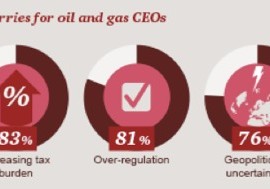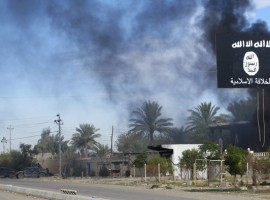Just a few years ago, it was inconceivable to think Egypt would ever look to Israel, or for that matter anyone, to import natural gas. Under a much criticized agreement with the Mubarak administration, Egypt, with copious amounts of natural gas reserves, exported gas to Israel via pipelines at a reduced market rate. Four years and two revolutions later, Egypt and Israel find themselves with reversed fortunes. While political and socio-economic instability has halted progress in Egypt’s gas projects, Israel has enjoyed a gas production boom thanks to the discovery of fields offshore in the Mediterranean. Therefore, the circumstances have led to an intriguing prospect, Israel exporting gas to Egypt. The very pipelines that were infamously used to send Israel gas could now be reversed to help Egypt with their energy crisis. How much gas and at what price remains a mystery, but what is certain is that this recent development would mark a major shift in the dynamics of the region and potentially make Israel, who is also set to export gas to Jordan and Turkey, a major energy player in the Middle East.
For all practical purposes, the proposed gas deal should not come as a surprise. It is much easier for Egypt, facing an energy crunch and in desperate need to expand its imports, to obtain gas from Israel given the already existing infrastructure. Many in the energy industry believe that while it may not be politically appetizing, it is the most realistic option. An energy executive for a major oil and gas company operating in Egypt, speaking to Egypt Oil & Gas, said the proposed Israeli gas deal “makes economic sense” and that it is “very feasible from a business and technical standpoint.” Irony aside, the existing pipelines offer an accessible remedy to Egypt’s current gas shortage.
In mid February, EGAS, the government-owned gas company, announced the signing of an MOU for gas imports with US firm Noble Energy. The ministry of petroleum did not provide details as to where the gas will come from, with some reports suggesting it will come from Cyprus, where Noble Energy holds a 70% stake in the Aphrodite field. However, Noble Energy also holds a 36% stake in the Tamar field as well as 40% of the nearby Leviathan field offshore Israel. Whether the gas is coming from Cyprus or Israel remains a mystery but it is no secret as to what has prompted the Egyptian government to potentially look towards Israel for relief. Daily electricity blackouts, once rare during the winter, have become commonplace, which has caused concern for the summer when the electric load is even greater. The heavier energy burden and need for imports has coincided with a reduction in Algerian gas imports over the last few years. Algeria, going on its own consumption binge, has steadily decreased its exports to Egypt and is not seen as a long-term gas provider. Therefore, it is no wonder that a senior official, as revealed in the Middle East Monitor, confides that Egypt has agreed to pay more for the gas from Noble Energy then the deal with Sonatrach, Algeria’s state-owned gas company.
So what does this gas deal hold for Israel? Since discovering the Tamar and Leviathan fields in the Mediterranean in 2010, Israel has seen its prospects dramatically shift from an energy importer to a potential net energy exporter. In addition to the proposed agreement with Egypt, Israel has also recently signed a gas export deal with Jordan and potentially with Turkey. These new developments could lead to what many would call petro-diplomacy, where relations between Israel and other countries in the region such as Jordan and Turkey could dramatically improve by means of energy trade. The agreement will most likely not transform all attitudes in the region towards Israel. Indeed, one of the most challenging tasks for Arab countries such as Egypt is handling public opinion in regard to any normalization of diplomatic or economic relations with the Israelis. Despite this feeling of ill will, the deal could ultimately produce a positive outcome. While the shift in policy will not be reshaped overnight, economic cooperation could provide a platform to build on for the political future of the region.
However, in addition to the international obstacles, domestic challenges still persist for Israel. The Leviathan field has been the target of Israeli antitrust regulators in recent months due to the fact that Noble Energy and Delek Group, an Israeli conglomerate, reportedly own a combined 95% of the offshore field. Israel’s energy minister, Silvan Shalom, has already stated that both firms need to sell some acreage in the field in order to increase competition. Nonetheless, Shalom recognizes the difficulty in attracting other foreign energy firms, especially those with ties to Arab countries. Speaking at an energy conference in Tel Aviv, he stated, “The Israeli market is a small market. And the interests they [IOC’s] have in Saudi Arabia and the Persian Gulf states… are much bigger… So to bring them here as competitors to other groups is not simple.” Therefore, even though both Noble and Delek have started to auction off parts of their assets, Israel has to walk a fine line between increasing the number of players investing in the Leviathan field while also being realistic about the political limitations companies face with the project.
Regardless of political differences, the proposed gas deal with Israel should be seen in its economic context. Importing gas from its neighbor will provide Egypt with a relatively inexpensive alternative to importing LNG from hundreds or thousands of miles away, and it will enable already available infrastructure to be utilized. While the optimal scenario for Egypt would still be exporting gas, the energy sector in the country is currently undergoing a transformational period. Any gas import agreement, whether it be with Israel, Cyprus, or Algeria, could very well be a short-term fix and not a long-term solution. Indeed, as Egypt has demonstrated over the past few months, it has taken a two-pronged approach towards combating its dire energy situation. In addition to seeking imports from various neighbors in the region, Egypt has also issued a plethora of exploration licenses to major energy firms for projects in the Western Desert and Mediterranean. Therefore, despite the sensitivity surrounding the proposed gas deal, Egypt should look at the practical side…it may keep air conditioners running this summer.








